如廁聲音太尷尬?日本用森林之聲來(lái)掩蓋 Electronics company develops smart device that cancels embarrassing toilet noises
中國(guó)日?qǐng)?bào)網(wǎng) 2018-02-06 09:05

去別人家做客時(shí)借用衛(wèi)生間,在里面answer the call of nature的時(shí)候,又擔(dān)心聲音太響,很尷尬?不用擔(dān)心,日本已經(jīng)發(fā)明出完美的遮音工具“聲音裝飾家”,這種設(shè)備可以在你如廁的時(shí)候發(fā)出大森林的美妙聲音,不僅可以完全遮蓋掉你的小便聲,還能讓你感到放松。

Japan is known as the most polite nation on Earth, and that extreme politeness extends to all aspects of life, including bathroom etiquette. Many public toilets feature a wall-mounted device that, when pressed, creates a sound that masks that of urination. However, electronics company Roland has come up with an improved version that drowns out embarrassing bathroom noises completely.
日本號(hào)稱是全球最有禮貌的國(guó)家,這種極度的禮貌滲透到日本人生活的方方面面,如廁禮儀也不例外。日本許多公廁的墻上都有一種裝置,按下按鈕就可以發(fā)出一種聲音來(lái)掩蓋小便聲。電子樂(lè)器制造商羅蘭公司日前研發(fā)出了一種改良版馬桶,可以完全蓋過(guò)令人尷尬的如廁聲音。
Before the technology boom of the 1980s, toilet users would either flush the toilet or turn on a sink to mask the sounds they made when relieving themselves. However, as this was a needless waste of water, a more eco-friendly solution was sought, and thus the concept of the toilet sound generator was born. The most famous of the resulting devices, developed and manufactured by toilet brand Toto, is the Otohime (literal translation – “sound princess”). These devices resolved the water waste issue but only partially efficient in making people comfortable in the toilet, because the sound they generated didn’t do a perfect job of masking the embarassing noises. Luckily, a better solution is now available to them.
在20世紀(jì)80年代技術(shù)蓬勃發(fā)展之前,如廁的人會(huì)用沖馬桶的水聲或打開(kāi)水龍頭來(lái)蓋過(guò)小便的聲音。然而,由于這種做法是無(wú)謂的浪費(fèi)水資源,人們開(kāi)始尋找更為環(huán)保的方法,于是廁所發(fā)聲器應(yīng)運(yùn)而生。最著名的廁所發(fā)聲器名為“音姬”(直譯是“聲音公主”),由馬桶品牌Toto研發(fā)和生產(chǎn)。這種設(shè)備解決了浪費(fèi)水的問(wèn)題,但也只是稍微讓人在廁所里感到舒服一些,因?yàn)檫@種發(fā)聲器產(chǎn)生的聲音并不能完美地掩蓋令人尷尬的聲音。幸運(yùn)的是,現(xiàn)在已經(jīng)有了更好的解決方案。
Japanese homeware brand Lixil has partnered with instrument maker Roland to address the sensitive issue of bathroom noises. They’ve created a new device called the “Sound Decorator”, which, unlike current solutions that only try to mask noises by emitting another sound, generates a pattern that makes the original sound less audible altogether. They achieved this by engineering a sound with a similar but stronger wavelength to that of urination, and, through what is known as the “auditory masking” effect, they were able to neutralize the weaker wavelengths and thus cancel out the unwanted noise.
日本家居用品品牌驪住集團(tuán)和樂(lè)器制造商羅蘭公司合作,共同解決如廁聲音的敏感問(wèn)題。他們聯(lián)手研發(fā)了一款名為“聲音裝飾家”的新設(shè)備,與目前的通過(guò)發(fā)出另一個(gè)聲音來(lái)掩蓋如廁聲音不同,這種設(shè)備發(fā)出的聲音會(huì)讓如廁聲音幾乎聽(tīng)不見(jiàn)。他們通過(guò)編輯出一種和小便聲音波長(zhǎng)相近但更強(qiáng)的聲音,利用“聽(tīng)覺(jué)掩蓋”效應(yīng),就能削弱波長(zhǎng)較弱的小便聲,從而消除不想要的聲音。

When the device is activated, it evokes a serene forest, with a babbling brook and the chirping of songbirds. As Lixil’s press release says, “We brought the equipment up to the mountains and recorded many samples such as wild bird’s chirping. You can taste relaxation with the sound that makes the image of the forest.”
當(dāng)設(shè)備被激活時(shí),就會(huì)發(fā)出寧?kù)o的森林之聲,包括小溪的潺潺流水聲和黃鶯的啁啾聲。如驪住集團(tuán)的新聞稿所寫的:“我們將設(shè)備帶到高山上,錄下了很多音頻樣本,比如野鳥(niǎo)的叫聲。這種聲音可以讓你感到放松,讓你的腦中呈現(xiàn)出森林的畫(huà)面。”
Lixil began selling their “Sound Decorator” systems from February 1st, but the devices are only available in Japan. There are two versions available, one that is activated by a motion sensor when the user waves their hand close to the panel, and the other which automatically generates the sound when someone approaches the toilet.
驪住集團(tuán)從2月1日開(kāi)始出售“聲音裝飾家”系統(tǒng),但是這種設(shè)備只在日本有售。目前有兩種版本,一種是通過(guò)用戶在控制面板附近揮手,觸發(fā)運(yùn)動(dòng)傳感器來(lái)激活,另一種是在用戶接近馬桶時(shí)自動(dòng)發(fā)出聲音。
The hand operated version costs 21,800 Yen, and the automatic version costs 32,800 Yen.
手動(dòng)版價(jià)格為21800日元(合1248元人民幣),自動(dòng)版價(jià)格為32800日元(合1877元人民幣)
There is no word yet on whether the technology will expand to include the infinitely more embarrassing noises produced by gas and defecation.
該技術(shù)的覆蓋范圍是否會(huì)進(jìn)一步擴(kuò)展,來(lái)掩蓋放屁和排便這些更尷尬的聲音,目前還沒(méi)有相關(guān)消息。
日本人為了能夠優(yōu)雅而舒適地上廁所可謂是用心良苦。不信,就來(lái)看看日本衛(wèi)生間內(nèi)各種令人嘆為觀止的設(shè)計(jì)和發(fā)明吧。
智能馬桶蓋:馬桶蓋永遠(yuǎn)溫暖如春,便后自動(dòng)用溫水沖洗馬桶蓋,洗完還會(huì)用熱風(fēng)吹干。當(dāng)然還可以溫水沖洗PP,洗完可以暖風(fēng)吹干
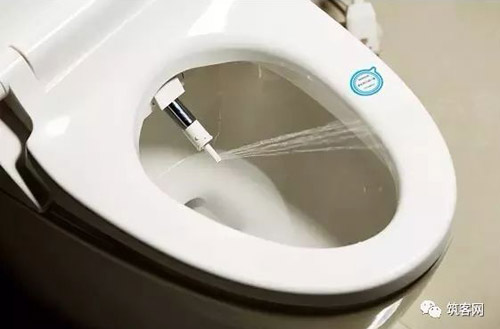
馬桶水箱上的洗手池:馬桶水箱的上面設(shè)計(jì)成洗手池,洗手水直接沖馬桶,衛(wèi)生又環(huán)保
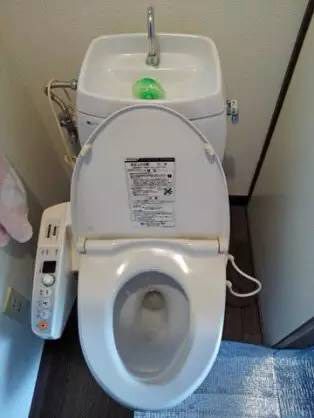
智能浴缸:可自動(dòng)放水、保溫、調(diào)溫,甚至可以通話

換衣臺(tái):要使用時(shí)可以放下,站在這個(gè)板子上換衣服,不容易弄臟襪子和衣服

浴室防霧鏡:日本的浴室鏡都是防霧鏡,所以浴室鏡從來(lái)不會(huì)被霧氣所困擾
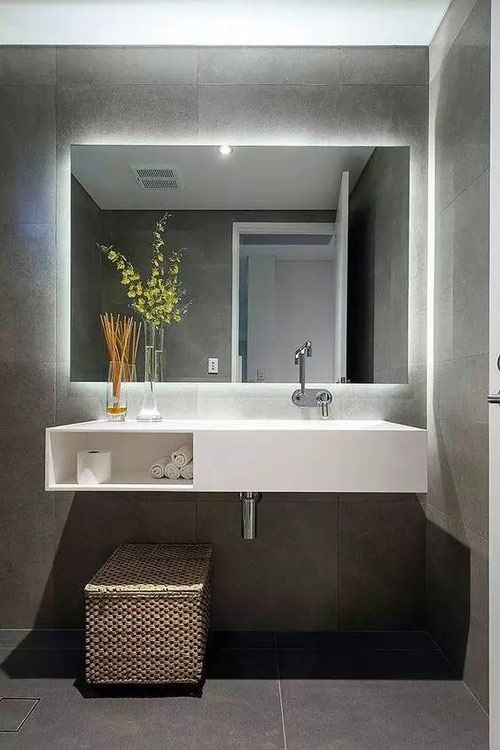
電熱毛巾架:日本洗手間的必備神器,這樣每次擦手都能用到又干又熱的毛巾
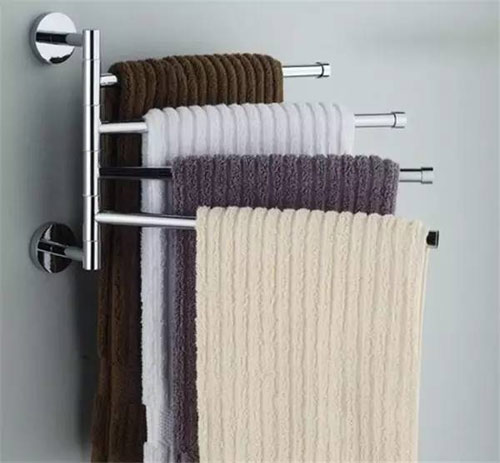
拉伸式水龍頭:這種水龍頭可隨意拉出來(lái)使用,非常方便
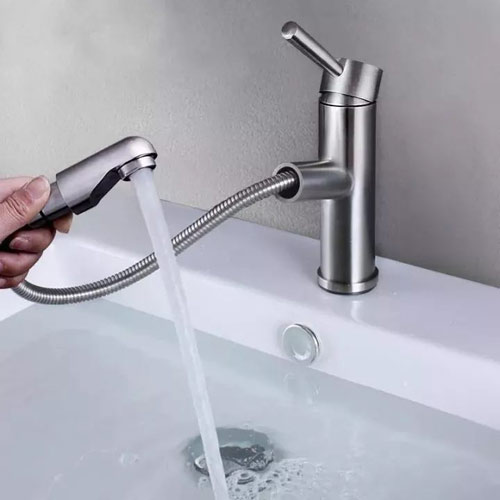
智能坐式淋浴:可以讓老年人也輕松淋浴,噴頭多方位對(duì)準(zhǔn)身體,“手臂”可根據(jù)個(gè)人高度調(diào)節(jié)
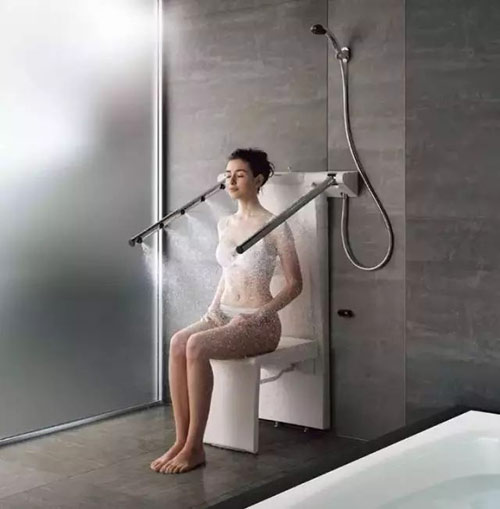
洗臉盆能給寶寶洗澡:日本很多衛(wèi)浴品牌的洗手盆設(shè)計(jì)的都偏大,而且底部扁平,這樣就是為了方便媽媽們給寶寶洗澡。

整體浴室地板:地板無(wú)縫對(duì)接,用海綿擦一擦就干凈了,而且地板和浴缸采用的是相同的一套保溫系統(tǒng),能夠調(diào)節(jié)溫度,踩上去非常舒服。

潛水艇式隱形地漏:清理起來(lái)很方便,永遠(yuǎn)不用擔(dān)心頭發(fā)、臟物堵住下水道。隱形地漏上面是與地面一樣的蓋板,美觀又易打理。

另外,日本專門成立了“廁所協(xié)會(huì)”,還把11月10日定為全國(guó)的廁所節(jié),每年這一天,日本都要舉行各種各樣宣傳“廁所文化”的活動(dòng)。(資料來(lái)源:筑客網(wǎng)、搜狐網(wǎng))
怎么樣,是不是服了呢?
英文來(lái)源:Odditycentral
翻譯&編輯:丹妮

















 英語(yǔ)點(diǎn)津微信
英語(yǔ)點(diǎn)津微信 雙語(yǔ)小程序
雙語(yǔ)小程序